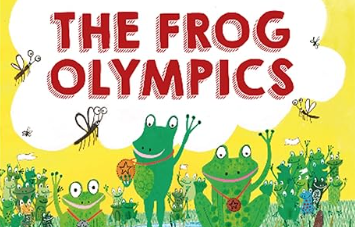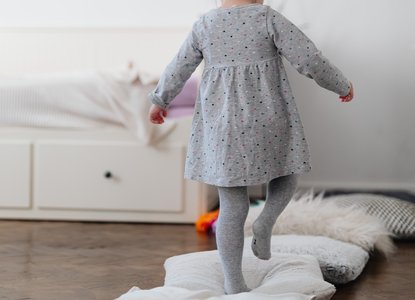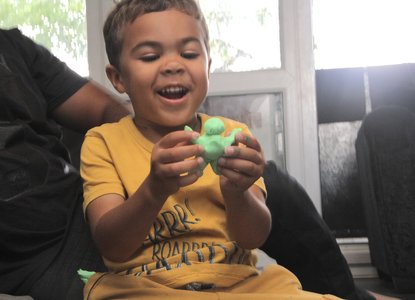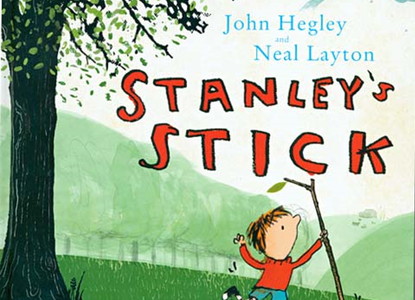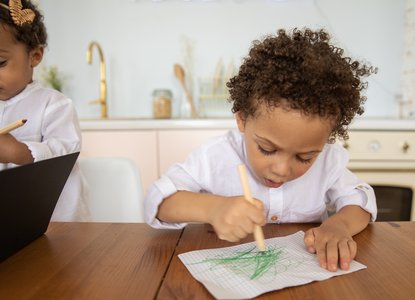Watch the story and then have a go at some Olympic activities!
Watch Olympian Jessica Ennis-Hill read The Frog Olympics, written by Brian Moses and illustrated by Amy Husband.
Who can jump the highest? Who can swim the fastest? Who has the longest tongue? Join frogs as they come together from around the world to celebrate the Frog Olympics!
As you watch the story together:
- Tell your children about the real Olympics and explain why Jessica Ennis-Hill is wearing medals.
- Talk about the activities the frogs are doing.
- Try to hear the rhyming words in the story, such as; around and ground, games and flames.
Play games based on the Olympics:
- Have a go at some Olympic activities for early years children in the garden or at the park, see how far children can jump, run or throw.
- Create your own Olympic event, maybe you could make an obstacle course or a wellie throwing competition!
- Invite your child to design their own Olympic flag using coloured pencils or paints.
- Make your own medals, and award one to people close to you for their special skill, it could be making cakes, doing up their own zip or jumping the highest.
- Change the story. Imagine a different version of The Frog Olympics together and start to tell the story. If a different animal were competing, for example in the Snail Olympics or Dog Olympics, what kind of games would they compete in?
Play games based on frogs:
- Try some of the games from The Frog Olympics. Maybe you could have a jumping competition. How far? How high? Or how many jumps can you do?
- Be inspired by the frogs and play some water games outside.
- Sing Five Little Speckled Frogs.
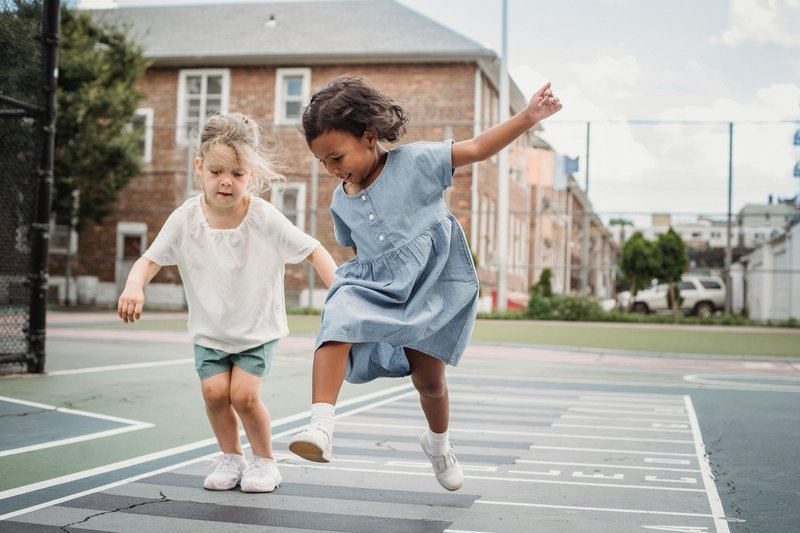
For older children:
Support your child to create their own mini-Olympics, for the family, or for their toys. Make flags, medals and tickets, and arrange seats for spectators to watch the athletes compete.
Did you know?
Physical games and activities support your child's development; building muscles, strength, balance and coordination. This will help them with tricky tasks as they get older. For example, using a knife and fork, or holding a pen and writing their name.
